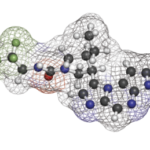 A Phase 3, double-blind, placebo-controlled study evaluated upadacitinib (ABT-494) in rheumatoid arthritis (RA) patients who had an inadequate response to conventional synthetic disease-modifying anti-rheumatic drugs (csDMARDs). Upadacitinib is an oral, selective JAK-1 inhibitor. In this study, which was presented at the 2017 ACR/ARHP Annual Meeting in San Diego, patients received 15 mg extended-release upadacitinib, 30 mg extended-release upadacitinib or placebo for 12 weeks—all once daily. The primary efficacy endpoints were the proportion of patients who achieved ACR20 response and the proportion who achieved DAS28-CRP low disease activity (≤3.2) at Week 12.1
A Phase 3, double-blind, placebo-controlled study evaluated upadacitinib (ABT-494) in rheumatoid arthritis (RA) patients who had an inadequate response to conventional synthetic disease-modifying anti-rheumatic drugs (csDMARDs). Upadacitinib is an oral, selective JAK-1 inhibitor. In this study, which was presented at the 2017 ACR/ARHP Annual Meeting in San Diego, patients received 15 mg extended-release upadacitinib, 30 mg extended-release upadacitinib or placebo for 12 weeks—all once daily. The primary efficacy endpoints were the proportion of patients who achieved ACR20 response and the proportion who achieved DAS28-CRP low disease activity (≤3.2) at Week 12.1
At Week 12, significantly more upadacitinib-treated patients compared with placebo-treated patients achieved ACR20 response (15 mg, 64%; 30 mg, 66%; placebo, 36%; P<0.001), as well as DAS28-CRP low disease activity (48%, 48% and 17.2%, respectively; P<0.001). The onset of action was rapid, with significantly more upadacitinib-treated patients achieving ACR20 at Week 1 compared with placebo-treated patients. At Week 12, significantly more 15 mg (38% and 21%) and 30 mg (43% and 27%) upadacitinib-treated patients met ACR50 and ACR70 criteria compared with placebo-treated patients (15% and 6%).
In addition, significantly more upadacitinib-treated patients compared with placebo-treated patients obtained a DAS28-CRP <2.6 (15 mg, 31%; 30 mg, 28%; placebo, 10%; P<0.001). More upadacitinib-treated patients had significantly greater improvements in DAS28-CRP, HAQ-DI, morning stiffness and FACIT-F compared with placebo-treated patients.
Adverse events and serious adverse events occurred more frequently in upadacitinib-treated patients than in placebo-treated patients. The overall infection incidence was higher in upadacitinib-treated patients than in placebo-treated patients. Few serious infections occurred, and four cases of herpes zoster/varicella zoster virus infection occurred, one in a placebo-treated patient. Asymptomatic creatine phosphokinase elevations were reported only for upadacitinib-treated patients. Two malignancies and three adjudicated cardiovascular events were also reported. No deaths, tuberculosis cases or gastrointestinal perforations occurred. Types and frequency of laboratory abnormalities were similar to findings in the Phase 2 upadacitinib clinical trials.
Upadacitinib appears to be a promising oral agent in the treatment of RA for patients with an inadequate response to csDMARDs, with a quick onset of action, efficacy and minimal adverse events.
Michele B. Kaufman, PharmD, BCGP, is a freelance medical writer based in New York City and a pharmacist at New York Presbyterian Lower Manhattan Hospital.
Reference
- Burmester GR, Kremer J, van Den Bosch F, et al. A Phase 3 randomized, placebo-controlled, double-blind study of upadacitinib (ABT-494), a selective JAK-1 inhibitor, in patients with active rheumatoid arthritis with inadequate response to conventional synthetic DMARDs. [abstract]. Arthritis Rheumatol. 2017 Oct; 69(suppl 10).



